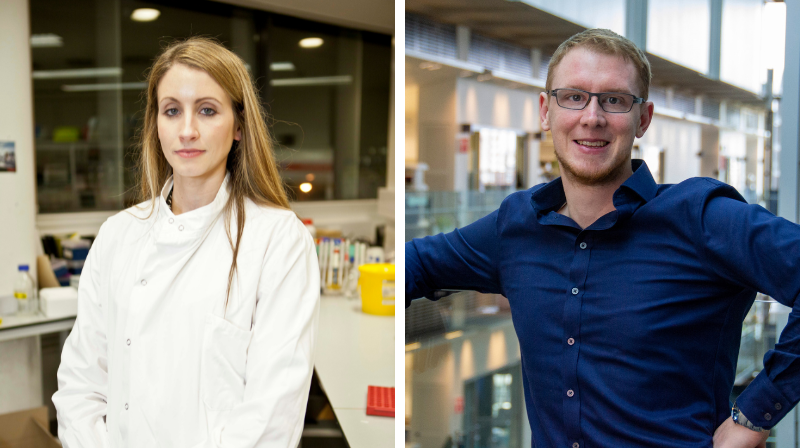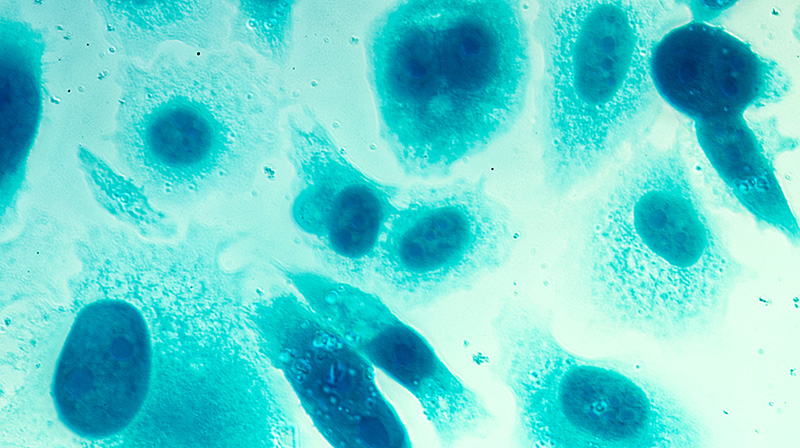
Developing new sugar-targeting drugs to personalise prostate cancer treatment
What you need to know
- The researchers will study a protein called GALNT7, which is found at high levels in men with prostate cancer.
- GALNT7 makes sugar molecules that are found on the surface of prostate cancer cells.
- They will test new and existing drugs that target GALNT7 (and the sugars it makes) to see if these block the growth and spread of prostate cancer.

What will Dr Munkley, Dr Schumann and their teams do?
The researchers will study how a protein called GALNT7 affects prostate cancer. This protein makes big sugar molecules (called glycans) that are found on the surface of prostate cancer cells, and help tumours grow, spread and escape the immune system.
GALNT7 is found in high levels in men with the disease, and the team’s earlier research shows that when it is added to prostate cancer cells in mice, it makes tumours grow faster. When GALNT7 is removed, the tumours stop growing.
The researchers hope to understand why GALNT7 is so important in prostate cancer and to find out if existing drugs that target GALNT7 can block the growth of the disease.
To do this, they will grow prostate cancer cells that have the gene for making GALNT7 turned off, and use advanced imaging techniques to track the growth of these cells in mice.
The teams will also test existing drugs that target GALNT7 (and the sugar molecules it makes) to see if they can stop prostate cancer cells from growing and spreading.
In addition to testing existing drugs, the researchers will also try to develop new drugs that block GALNT7. This will involve finding small molecules that can stop GALNT7 from working, and testing them in the lab to see if they are effective at blocking the growth of prostate tumours.
Finally, the teams will analyse samples from men with prostate cancer to see if GALNT7 levels can be tracked in the blood. This could help doctors find out which men are most likely to benefit from any new treatments that result from the research.
How will this benefit men?
New treatments are urgently needed for men with advanced prostate cancer, and this research could significantly improve these men’s chances of surviving the disease, as well as their quality of life.
Research suggests that GALNT7 is a key player in prostate cancer, and this could be exploited to develop new life-saving treatments. Treatments targeting GALNT7 are already being developed for other types of cancer, and this research could ensure that men with prostate cancer can also benefit.
Discovering new drugs to block GALNT7 is an important opportunity to develop new treatments for men at high risk of their prostate cancer spreading, and for men for whom other treatments have stopped working.
In addition, monitoring GALNT7 in blood samples could make it possible to find out which are men most – and least – likely to benefit from any new treatments developed. This way, these men could be moved onto the right treatment for them without delay.
Grant information
Reference: RIA21-ST2-006
Researcher: Dr Jennifer Munkley and Dr Benjamin Schumann
Institution: Newcastle University
Award: £513,099
Help us fund more research like this
Your donation helps us fund lifesaving research into better treatments for prostate cancer.




